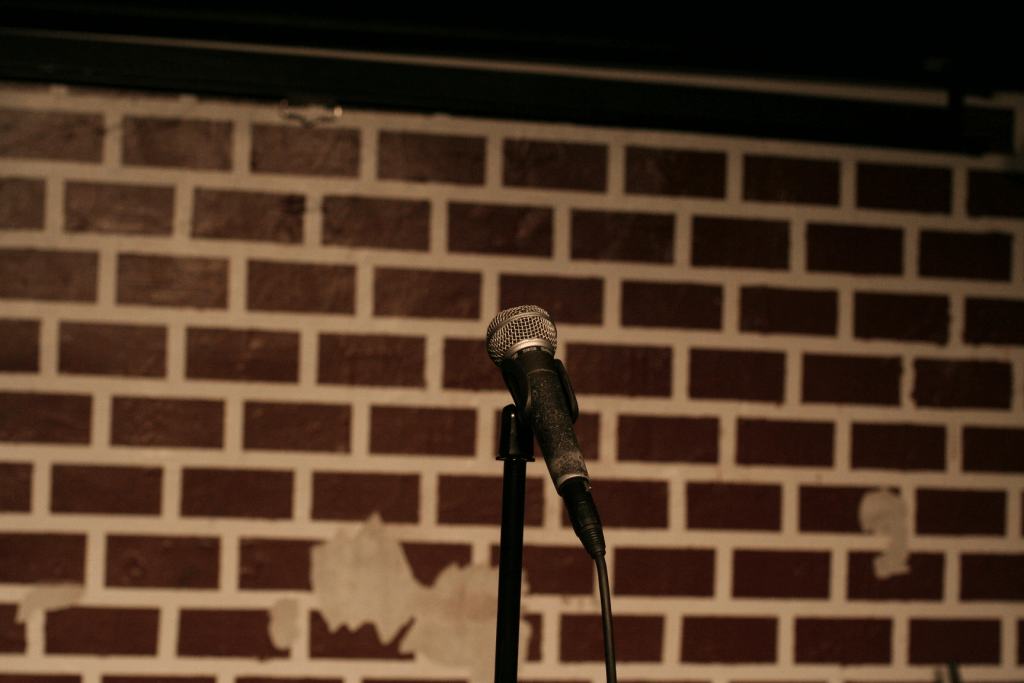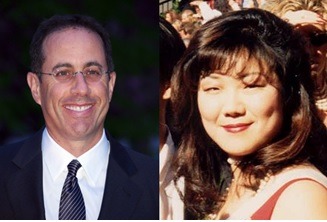
You’ve probably heard the phrase, “Dying is easy. Comedy is hard.”
It is often credited to Shakespearian actor, Edmund Kean (but even that is debatable). Nonetheless, it’s a great line, and everyone paid to make people laugh nod their heads when they hear it.
It came to mind when I came across the story about standup comedian Margaret Cho. She recently had a disastrous show at the Stress Factory in Brunswick, New Jersey.
And she’s getting a rare second chance to perform again – with the same audience. Jerry Seinfeld has swooped in, and set up a “make-good.” In an email to everyone who bought their ticket online, Seinfeld devised this unique opportunity for Cho and the audience to try again:
“At most workplaces, if there’s a problem on the job, there’s a conversation and usually some sort of outcome. But when a stand-up show doesn’t go well, the audience and the comedian both go home unhappy, sometimes not really sure what went wrong.”
So a second chance or a “do-over” to get it right for both the performer and those who paid to see her. But this “mulligan” will be different than the original bad night. This time, the audience and Cho will take part in a discussion about what went down at this first show. After moderating this conversation, Seinfeld will perform a set himself. And of course, there’s no charge for those who originally endured the show to try aagain.
 When I read the story, I thought of all those morning shows, talk hosts, and radio personalities who never get a second chance when a show goes south. And when many of them read this post, they may be jealous they don’t have a Seinfeld who will rescue them from a crappy show they simply can’t get back.
When I read the story, I thought of all those morning shows, talk hosts, and radio personalities who never get a second chance when a show goes south. And when many of them read this post, they may be jealous they don’t have a Seinfeld who will rescue them from a crappy show they simply can’t get back.
Because it happens – more often than anyone cares to admit. And the hope – like a horrible baseball blowout – is that it’s a long season and tomorrow will be better.
But in the PPM-rated, daily cume pressurized environment in which stations and personalities now live, there is no opportunity to make up for an epic fail – even if it’s just one show.
It speaks to the need for personalities to bring their best game every day, because there truly won’t be a Jerry Seinfeld waiting to make it all better.
In radio – as in standup – it’s a real-time, high-wire/no net environment where the only option is to do your best work when the mic opens because you can’t go back and try it again. Every break is a statement, an opportunity to entertain, perform, connect, and hopefully, to make a little magic.
There are no mulligans, do-overs, or additional takes.
Unless, of course, you’re voicetracking.
- Why “Dance With Those Who Brung You” Should Be Radio’s Operating Philosophy In 2025 - April 29, 2025
- The Exponential Value of Nurturing Radio Superfans - April 28, 2025
- What To Do If Your Radio Station Goes Through A Midlife Crisis - April 25, 2025




The one thing I’ve noticed about comedy in morning radio is that it seems to be a battle with all the hosts, to try to out do the others punchline on the “bit.” One comes up with the premise and all the rest come up with a bunch of punchlines hoping that one will work. As a seasoned stand-up, never try that. You will bomb. Work on comedy, Fred is right, “Comedy is hard.”
Premise, Set up, Punchline…NOT…Premise, Set Up, Punchline, Punchline, Punchline. In radio you can’t hear or see your audience so remember that a humour bit should be followed with a promo or commercial set. It acts almost like a rim shot…bada boom!
Just my 2 cents
Bryan Cox
and yes I used to work in Radio for a ton of years.
Bryan, thanks for the note and the affirmation of just how hard it is to be truly funny – without an audience reacting to your every joke. You may like tomorrow’s post – advice from one of the best talent “handlers” in all of radio and TV. (How’s that for a tease?)
Looking forward to it Fred! Keep up the great posts!
I think the missed point here is that Jerry Seinfeld stepped up and turned a disaster into a big cool moment for the audience members. That’s the kind of thing great morning shows and radio stations used to do.
I think you make a great point, Dave. There was a time when it was radio to the rescue. Thanks for reminding someone who can be guilty at times of being a little deep in the trenches.
Yep, I’m with Dave here. Not everything works in morning radio and if it does, I think you are not going for enough. I had a saying as we would make fun of our failures: “sometimes bad radio is good radio.” Sometimes are best moments on the air is when we let the audience in, behind the curtain.
Some personalities can pull off the “Well, that really sucked” card and make it work. Howard Stern has made a career on self-deprecation. We weren’t in the audience that night in New Jersey, so we don’t know if Margaret Cho went there. You can only make that move once in a set, right? Thanks, Matthew, for the comment.
Really enjoyed this post Fred Jacobs . It may feel like overstating it to some. After all, it is “just radio”. But even in the times it flops, this is always the way I approach my show. Cardinal Sin #1? Not trying. Cardinal sin #2? Being boring. There are simply too many other options for listeners these days. Jocks, stations, management teams and ownership groups who forget this will eventually get bit by that reality.
Totally true, Mike. Even in this environment where there are fewer talk opportunities, that’s no reason why every break shouldn’t be stellar. Yes, there are situations where DJs are instructed to just read the cards. But for everyone else, you can truly work magic in :30 windows. Appreciate the comment.